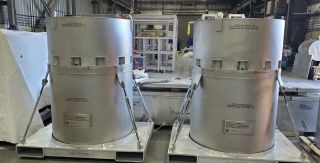ETI: The Consortium for Enabling Technologies and Innovation (ETI) is a group of 12 universities led by the Georgia Institute of Technology and including Abilene Christian University, Colorado School of Mines, Massachusetts Institute of Technology, Ohio State University, Rensselaer Polytechnic Institute, Stony Brook University, Texas A&M University, University of Alaska–Fairbanks, University of Texas–Austin, University of Wisconsin–Madison, and Virginia Commonwealth University. The 12 national lab partners in the consortium are Argonne, Brookhaven, Idaho, Lawrence Berkeley, Lawrence Livermore, Los Alamos, Oak Ridge, Pacific Northwest, Sandia, and Savannah River National Laboratories; Princeton Plasma Physics Laboratory; and the Nevada National Security Site.
The main goal of the ETI, according to its website, is “to create a research and education environment to support cross-cutting technologies across three core disciplines”:
- Computer and engineering science research, specifically in a form of machine learning and high-performance computing.
- Advanced manufacturing.
- Nuclear detection technologies.
ECTI: The Enabling Capabilities in Technology Consortium (ECTI) is a group of 15 universities led by the University of Tennessee–Knoxville. The other academic members are the Colorado School of Mines, Air Force Institute of Technology, Clemson University, University of California–Santa Barbara, University of Hawaii, Louisiana State University, MIT, North Carolina State University, University of Oklahoma, Oregon State University, Texas A&M University; University of Texas–San Antonio, University of Utah, and Virginia Polytechnic Institute and State University. There are eight national laboratory partners in this consortium: INL, LBNL, LLNL, LANL, ORNL, PNNL, Sandia, and SRNL.
Pipeline of talent: According to the NNSA, the cooperative agreements for the two consortia will help to develop “an effective pipeline of talented next-generation experts to establish careers at DOE national laboratories.” The statement adds that the “diverse and talented cadre of professionals” developed through the work of the consortia will “become tomorrow’s scientists, engineers, technicians, operational personnel, and intelligence professionals . . . [who] could very well change the future of nuclear nonproliferation, nuclear arms control, nuclear incident response, nuclear intelligence activities, nuclear energy, and other related fields.”




